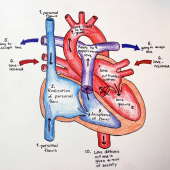
Abstract: This case study follows the eight-year development of an environmental anthropology course, beginning with my own failure as a teacher to provide students an adequate way of thinking and acting amid planetary crisis. It then turns to a diagnosis of three challenges students face when thinking about global ecological futures: (1) an inability to act, (2) an inability to imagine how an individual can make a difference, and (3) an inability to conjure an adequate sense of hope. For each of these challenges, I introduced a conceptual metaphor designed to help us think anew, where a conceptual metaphor is a trope that enables thinking about one conceptual domain in terms of another. The metaphor of wayfaring helped us overcome the conviction that one must become an expert before acting. The metaphor of seed planting helped us reimagine how an individual can contribute to larger-scale change. Finally, I introduce two new conceptual metaphors for thinking about hope amid planetary crisis—weedy invasions and broken jars. By working with these tropes, I propose an alternative way of thinking about hope that does not rely on a sense of optimism. Along the way, I make two broad arguments. First, thinking through novel conceptual metaphors, what I call metaphor work, is a worthwhile technique for approaching planetary crisis with students. Second, an undergraduate seminar is an excellent place to experiment with new ways of thinking about, and living in, the Anthropocene.
Continue ReadingAbstract: Sustainability educators are in a difficult spot. They must describe our unsustainable impacts on the environment and marginalized peoples, our growing understanding of how these impacts affect future generations and other species, and our failures to make the changes necessary to approach sustainability. At the same time they must avoid pushing students over an obscure tipping point where such information causes them to retreat into despair. For despair leads to inaction, which will only hasten the deterioration of planetary health. We propose two approaches to helping students avoid despair and strengthen their motivation for pursuing sustainable changes. One approach appeals to the motivational energy of hope and the other to the power of tranquil resolve described in Stoicism. We understand these approaches to be complementary. The skills of hope work well when we are pursuing long shot goals, while those of tranquil resolve aid when the achievement of our goals is beyond our own control. While the skills of hope are more aligned with our cultural norms and thus likely easier to teach, skills associated with a tranquil resolve can more powerfully (and lastingly) address the climate challenges we face. Pedagogical examples and strategies of these skills in action are offered throughout.
Continue Reading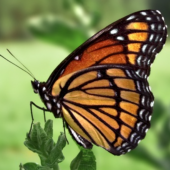
Abstract: This word journey explores flaws in our approach to cultivating environmental ethics and caring for biodiversity, especially among youths, through the lens of Carson McCullers’ classic story about the tragic but common failure of so many to achieve love between human beings.
Continue Reading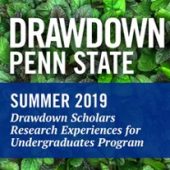
Abstract: Podcasts are increasing in popularity as an educational tool in recent years, but there remains a lack of podcasts that focus on climate change. The goal of this project was to create a series of audio files that address global warming solutions in the state of Pennsylvania, with each episode based upon a drawdown solution. Project Drawdown is a nonprofit organization that models how to reach “drawdown”— the future point in time when levels of greenhouse gases in the atmosphere stop climbing and start to steadily decline. This audio collection contains new and original podcasts addressing each Project Drawdown sector of global warming solutions, such as materials and waste, electricity generation, and land use. To highlight efforts in Pennsylvania, thirteen interviews were conducted with scientists, journalists, and professionals from organizations across the state, such as Feeding Pennsylvania, Southeastern Pennsylvania Transportation Authority (SEPTA), Philadelphia Green Roofs, StateImpact Pennsylvania, and Land Air Water Legal Solutions. Named Drawing Down in Pennsylvania, the podcast collection starts with an introductory episode, then eight episodes each corresponding with one of the Project Drawdown sectors, and wraps up with two additional episodes – one titled “Hope” with messages of optimism towards achieving warming solutions from the interviewees, and a special episode that focuses on The Pennsylvania State University and its efforts toward to drawdown. The audio collection is published online, together with corresponding transcripts and supplemental materials. It is hoped that these podcasts will help inform Pennsylvania residents to make choices and to take action for a sustainable future. For residents outside of Pennsylvania, these drawdown efforts can be applied to different populations and regions. The entire podcast series can be accessed at: https://sites.psu.edu/drawingdownpa/ and is suitable for middle school through college classrooms as well as general audiences.
Continue Reading
While sustainability is often perceived from a framework of fear, emergent understandings of sustainability are rooted in pedagogies of hope. In particular, radical hope, or critical-transformative hope, is transforming sustainability. Radical hope is contextually dependent and is made meaningful when in action. Collective movements such as the buen vivir social movements and transition movements are realizations of radical hope in praxis. Overall, this paper aims to demonstrate that through a multiplicity of movements, sustainability is in the process of continual becoming.
Continue Reading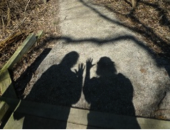
This article focuses on ‘Hope and a Hike’ a women’s walking group in Ann Arbor, Michigan. The group uses an online Meetup to bring women together for weekly one-hour hikes which include information about a local positive conservation initiative (the hope component). It combines exercise, health gains, and social opportunity, with knowledge, positive local conservation success stories and experience in forested areas. The goal is to awaken a connection to the natural environment with hope and a desire to care and take action for the environment. Participants are women, mostly ages 35-70. This case example includes how the group relates to research on: benefits of walking in nature, awe, women, hope, connection to nature, pro-environmental actions and relational activism. Details about hope topics and ideas for expanding the hikes could be used in informal education as well as in course development.
Continue Reading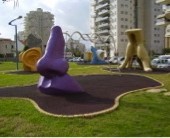
Abstract: Recent sustainability education theorists have identified a gap in the research literature regarding sensory entanglement and wonder in sustainability education. Sensory entanglement and wonder are requisite because they bring valuable shifts supporting a more critical and transformative kind of sustainability education by (1) awakening a compassionate connection with the living world, (2) nurturing alternative epistemologies, (3) providing a strengthening function for sustainability educators and their co-learners, for stamina and ongoing engagement, and (4) generating sustainability agency and an active and authentic hope to sustain a sense of the possible in the midst of the dire. This article focuses on how awakening the senses to foster a sense of wonder can nurture grounded, authentic, active hope and agency in sustainability education. It is authored collaboratively by sixteen graduate course participants and faculty co-researchers who discuss interrelated theories pointing to a need to foster senses of wonder in sustainability education. The researchers work in research teams to explore experiential and sense-based hope- and agency-building curricula. Findings include activities and reflections across the five senses as well as with the sixth sense, intuition. Sensing, listening, intimate observing, imagining, feeling, entangling, and wondering can shift unsustainability epistemologies and transform human and cultural engagement. The sense of sound can be immersive and resonant, lending learners to relational and multispecies sensing. Scent can catalyze wonder and inspire experiential, holistic growth and integration of time. Savoring in the sense of taste can extend learners from survival to joy, offering opportunities for mindfulness that can connect cultural and biocultural mutualisms and collaborative sustainability agencies. Pattern sensing for similarity using the visual sense of wonder can support connected knowing and ecological vision. The sense of touch can offer a continuous and mutual comfort and belonging. Visual pattern and texture scavenger hunts can cultivate these sustainability sense capacities. The sixth sense, intuition, opens learners to imaginative, transformative, and connective ways of knowing as place and planet, stimulating hope-giving, integrative sustainability agencies.
Continue Reading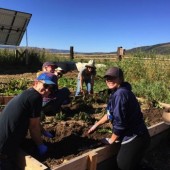
Abstract: Offers a brief introduction to the Journal of Sustainability Education issue focused on hope and agency, highlighting hope and agency as essential aspects of sustainability education in the Anthropocene.
Continue Reading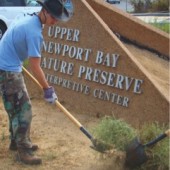
Abstract: If we are to educate the coming generation about the threats to the environment and the consequences of the excesses of human actions on our planet, educators need to consider critical pedagogy as a means of engaging students in thought and action. This article examines texts from prominent sustainability advocates and researchers, analyzing how they frame sustainability on a spectrum of hope that will then enable educators to address sustainability education with a realistic sense of agency while preparing students to meet the challenges for a sustainable future. Suggestions for pedagogical applications are included for each category across the spectra of hope.
Continue Reading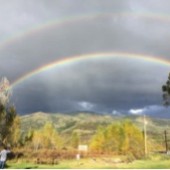
Abstract: In his landmark book Native Science (2000), indigenous educator Gregory Cajete eloquently articulates the motivations and questions that drive this study. For Cajete, effective education of our time entails “finding heart.” Finding heart is an active process within and beyond the person. It is evident in ethically and spiritually grounded work and being that embody meaningful connection to and care for others and nature (p. 288). This article relates to the process of finding heart through sustainability education. It presents a grounded-theory-based study of aspects of sustainability education that motivate or detract from activating hope and agency among undergraduate college students. Specific aspects of conceptual and social engagement, as well as the duration of these effects, are examined in some depth, with the voices of students themselves reflecting the diversity, depth, and power of their experience. The author concludes by suggesting that generating hope and agency among students is a vitally important outcome for sustainability education as part of the larger movement for sustainability. She also suggests curriculum design considerations for effectively activating hope and agency among students.
Continue Reading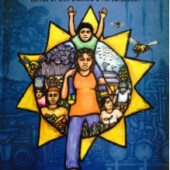
Abstract: The anthropocene era is one that is rife with ecological and social crises. Although many have been aware of the enormity of these problems and their systemic roots, the widespread educational response has not been sufficient in preparing youth to take part in creating a more just and sustainable world. Climate change is an umbrella issue for much of what the worlds facing. It is time for teachers to take the lead in using the classroom as a place to bring relevant, critical, joyful education that will lead to action in this crucial time. The following article is a book review for A People’s Curriculum for the Earth, a powerful resource for helping teachers equip students to confront our interconnected global crises, especially the climate crisis, and to highlight stories of teachers, activists, and organizations working to make a difference.
Continue Reading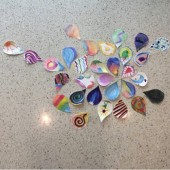
Abstract: Integrating contemplative methods into discussions of sustainability can create a sense of hope and agency in our students. In this case study, I present four tools that I use in my upper-level undergraduate/graduate seminar to engage students more deeply in reflection on topics in environmental ethics.
Continue Reading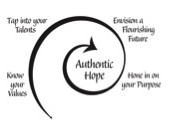
Abstract: Hope is a human process of discovery and perseverance that is based in personal values, a vision of the future, and a sense of purpose. This essay gives a brief overview on the role of phenomenological research in discovering the meaning of people’s lived experiences, such as the experience of hope. An example of phenomenological research on field ecologists’ lived experiences of climate change is provided in order to illuminate the experience of “silver linings” as the experience of hope while living in the midst of the dark cloud of climate change. An overview of a reflective curricular activity designed to cultivate hope and purpose in sustainability studies is provided.
Continue Reading
Abstract: This essay examines Randall Amster’s book Peace Ecology as a critical intervention articulating vital connections among discourses from peace and justice studies (on one hand) and the most vexing problems addressed by sustainability studies (on the other): from violent conflict and social inequity to environmental injustice and global ecocide. Reading this dialogue through the lens of hope, the author argues that Amster’s synthesis of this research provides effective tools for helping educators, students and practitioners of sustainability to generate new thought – and direct action – around these issues. By cataloguing and analyzing the many successes of ecological peacebuilding without absolving the paradigms of thought that continue to propagate war against people and planet, Amster empowers us to avoid both the trap of despair and the delusion of complacent optimism in order to foster the conditions that promote human beings’ mutually-beneficial peace and coexistence with each other and with the Earth.
Continue Reading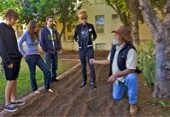
Abstract: Since Michael Crow, President of Arizona State University, founded the School of Sustainability in 2006, sustainability has become a central focus at the University. ASU offers both undergraduate and graduate degrees in sustainability, from Bachelor’s degree to Ph.D. level. The author, the Dean of the School of Sustainability at ASU, discusses how the University’s programs foster hope and agency among students and prepare them to address the pressing challenges of living and working sustainably. The author focuses primarily on curricular strategies and also addresses some extra-curricular strategies employed at ASU. He also discusses post-graduate employment patterns of alumni who have built upon their educational experience at ASU to become agents advancing sustainability in their work.
Continue Reading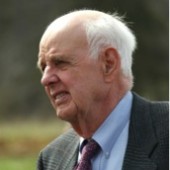
Schreck JSE Nov 2015 Hope Issue PDF Abstract: This essay chronicles three experiences I had within a matter of days that clarified for me how easily the good sense of Wendell Berry’s thinking is drowned out by the reductive presuppositions of modern industrialism and how necessary his thinking is for our hope of survival. With […]
Continue Reading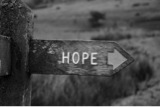
Abstract: The concept of hope is rich in context, and working with it from different angles can enhance inner resources. Framing hope as a process offers tools for sustainability educators: subjective exploration, empathy development, critical thinking, and civic engagement.
Continue Reading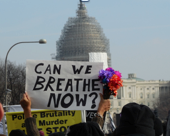
Abstract: Writing an essay about hope in these times feels like an indulgence of privilege. Still, with full awareness of the implications, I want to insist that we not lose hope, that we make it meaningful, and that we go so far as to make its cultivation a central focus of our lives and work. This essay is intended to serve as a calling card for like-minded inquirers to reach out across time and space, to find ourselves and one another in the engaged optimism of meaningful work in the world, and as an acknowledgment of appreciation for all of those who do so.
Continue Reading